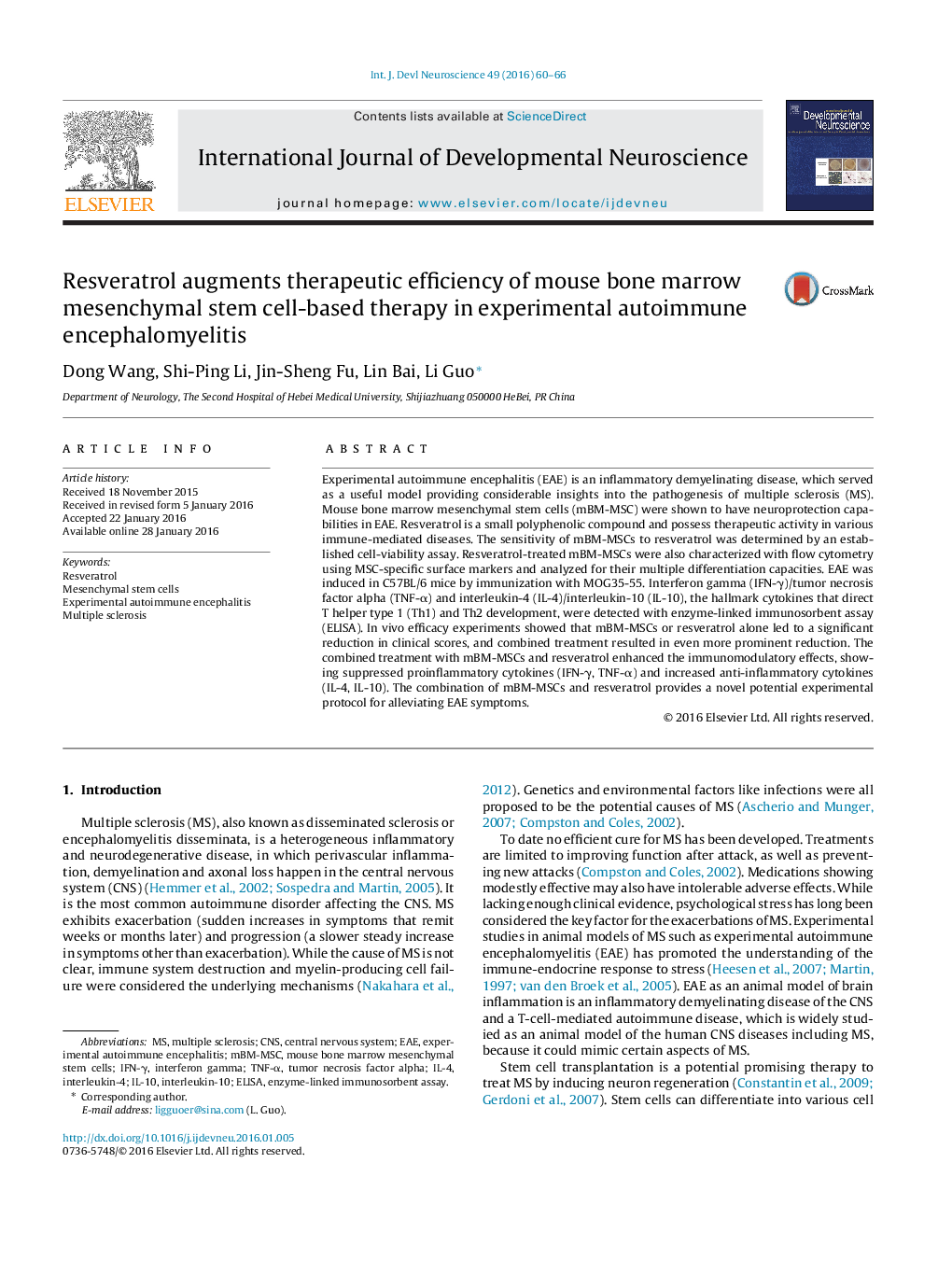| Article ID | Journal | Published Year | Pages | File Type |
|---|---|---|---|---|
| 2785676 | International Journal of Developmental Neuroscience | 2016 | 7 Pages |
Abstract
Experimental autoimmune encephalitis (EAE) is an inflammatory demyelinating disease, which served as a useful model providing considerable insights into the pathogenesis of multiple sclerosis (MS). Mouse bone marrow mesenchymal stem cells (mBM-MSC) were shown to have neuroprotection capabilities in EAE. Resveratrol is a small polyphenolic compound and possess therapeutic activity in various immune-mediated diseases. The sensitivity of mBM-MSCs to resveratrol was determined by an established cell-viability assay. Resveratrol-treated mBM-MSCs were also characterized with flow cytometry using MSC-specific surface markers and analyzed for their multiple differentiation capacities. EAE was induced in C57BL/6 mice by immunization with MOG35-55. Interferon gamma (IFN-γ)/tumor necrosis factor alpha (TNF-α) and interleukin-4 (IL-4)/interleukin-10 (IL-10), the hallmark cytokines that direct T helper type 1 (Th1) and Th2 development, were detected with enzyme-linked immunosorbent assay (ELISA). In vivo efficacy experiments showed that mBM-MSCs or resveratrol alone led to a significant reduction in clinical scores, and combined treatment resulted in even more prominent reduction. The combined treatment with mBM-MSCs and resveratrol enhanced the immunomodulatory effects, showing suppressed proinflammatory cytokines (IFN-γ, TNF-α) and increased anti-inflammatory cytokines (IL-4, IL-10). The combination of mBM-MSCs and resveratrol provides a novel potential experimental protocol for alleviating EAE symptoms.
Keywords
Related Topics
Life Sciences
Biochemistry, Genetics and Molecular Biology
Developmental Biology
Authors
Dong Wang, Shi-Ping Li, Jin-Sheng Fu, Lin Bai, Li Guo,
